#vdts
Text
Você fez doer em mim o que alguém fez doer em você, mesmo sabendo que eu não merecia.
Srta. Bukowski
#vdts#sentimentos#amor#projetoversografando#dor#projetomardeescritos#projetosonhantes#projetopequenosescritores#projetoalmaflorida#arquivopoetico#mentesexpostas#mente solitaria#projetonovosautores#projetovelhopoema#projetoflorejo#arquivopessoal
3K notes
·
View notes
Text
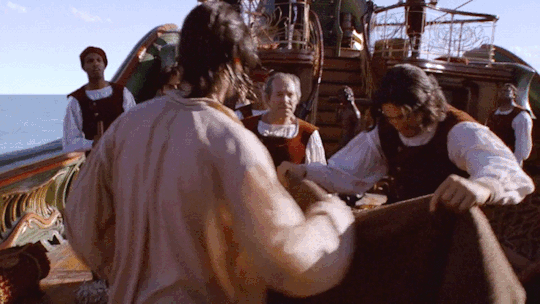
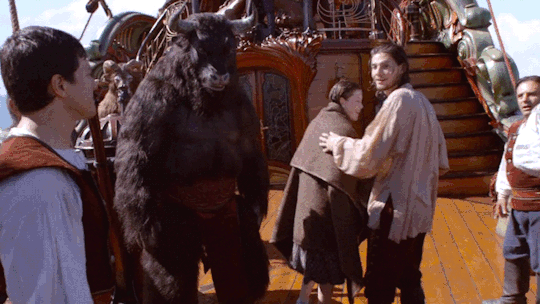

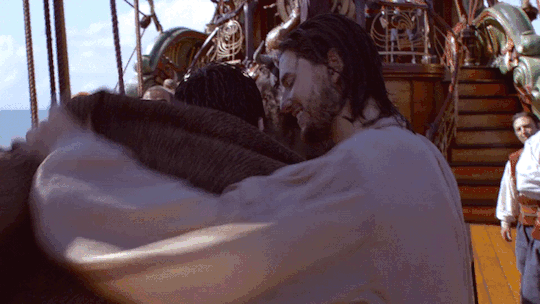
caspian kissing a blanket and then giving it to edmund
#casmund#caspian the tenth#edmund pevensie#the chronicles of narnia#the voyage of the dawn treader#gif#narnia gifs#my gifs#nova actually posts stuff#honestly i think about this a lot and no one ever mentions it#(because caspian's just drying his face but shh let me have this)#so i am practicing my gif-making on this moment#seriously gotta kiss the blanket and then give it to edmund#gotta brush my lips against edmund's hair while i give it to him#it's like caspian's playing how many indirect kisses can i give edmund in the span of two minutes#the higher the queuer#vdt gifs
335 notes
·
View notes
Text
eustace: how the fuck do people just stay motivated their entire lives? what drives you? i got out of bed once and i've been exhausted ever since
edmund: you need to hate life to the point where you want to get revenge on existence itself
caspian: best advice ever
#post dragon incident in vdt#eustace scrubb#caspian x#edmund pevensie#incorrect narnia quotes#incorrect quotes#narnia
76 notes
·
View notes
Text
So in That Hideous Strength, C.S. Lewis names Arthur, Barbarossa, Enoch, and Elijah as the only people never to have died. You know who he's (ironically) missing?
Reepicheep.
#yeah i know he's not the self -referential type#plus rhe space trilogy predates vdt#all I'm saying is that it /I/ made a 'people who never died' list Reepicheep would definitely be on it#jack#narnia#space trilogy
54 notes
·
View notes
Text
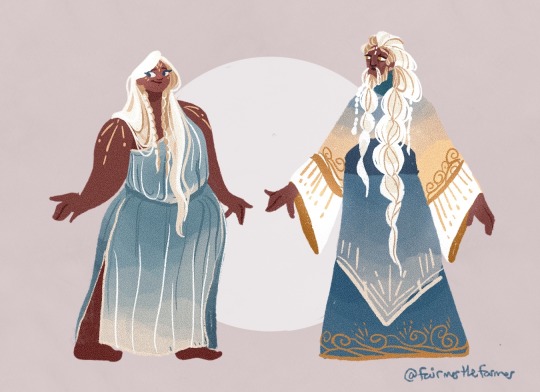
Retired Star and his daughter who live at the last island on the eastern ocean.

Also here’s Ramandu with and without his cloak that I decided he has.
I will draw every single character from this book
#please tell me someone knows these characters from the book#I’d say this is too niche but I’ve already posted some of my crew OCs#fairmerthefarmer art#Narnia#Narnia books#voyage of the dawn treader#so we’ve been there#vdt#chronicles of narnia#is there even a tag for these characters?#ramandu#lilliandil#I actually hate that name from the movie#I can’t place why.#character design#character art#illustration#artists on tumblr#queer artist#reblog#procreate#caspian x#Ik he’s not in this post but technically he becomes her husband at least in the books#my art <3#digital illustration#c.s. Lewis
51 notes
·
View notes
Text
Today in thoughts that would make C. S. Lewis roll in his grave: watching HRT take effect, especially when I touch my skin (especially especially after shaving), feels like how Eustace must have felt when Aslan peeled off all that scaly dragon skin to restore his true form. Come to think of it, a constrictingly tight metal bracelet makes an apt metaphor for the low-intensity gnawing dysphoria that became the background radiation of my life from adolescence onward.
#eustace scrubb#eustace clarence scrubb#the voyage of the dawn treader#voyage of the dawn treader#votdt#vdt#narnia#the chronicles of narnia#c. s. lewis#c.s. lewis#c s lewis#cs lewis#there's a they wolf in my closet#gender#gender euphoria#genderqueer#queer#transgender#trans#lgbtq+
225 notes
·
View notes
Text
sitting here scanning through research papers about thymomas trying to figure out if Wilson could have had cancer the entire series because i’ve got problems
the answer is yes by the way
#cancer //#medical //#house md#james wilson#so thymomas are slow growing and have been recorded as taking up to TEN YEARS for a tumour to double in size#the problem is#there isnt' a lot of research done on this particular topic#and the studies i can find have relatively low data pools#which makes sense because it's a pretty specific cancer#but that means that pretty well all studies into the doubling time (VDT) of thymomas ALSO include patients#with thymic carcinomas#and thymic cysts#both of which are fast growing#and most papers distinguish between them but some just straight up loop them all together#which is just stupid#so these things combined means what studies i have looked at all have a wide range of VDTs assigned to thymoma specifically#but based on the size of wilson's tumour#it's entirely possible he's had it the entire time we've known him#in fact#i'd call it likely#i am#not a doctor#don't quote me on this
166 notes
·
View notes
Photo
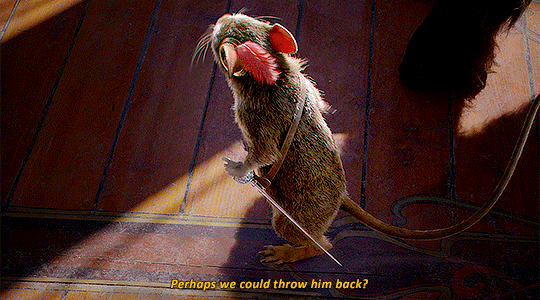
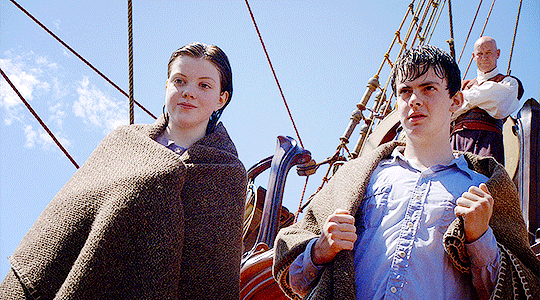
Endless list of favourite Edmund Pevensie moments 14/???
#narniaedit#tconedit#disneyedit#filmedit#disneyfilms#the chronicles of narnia#the voyage of the dawn treader#userdraconis#userdiana#chewieblog#narnia#lucy pevensie#edmund pevensie#vdt#edmundp#endlessedmund
985 notes
·
View notes
Text
Something that got me thinking:
I'm in a Narnia fans Facebook group and recently someone posted about how the one thing that bothered him the most about VDT the 2010 movie was how of all the things they've changed, they kept the albatross at the Dark Island, because it makes no sense in the context of the movie.
I commented on maybe because they put it in, because of how iconic the whole scene was and of course here's the line, "Courage, dear heart". But the more I thought, the more I wasn't sure if I remember the albatross saying the line. I spent some time browsing for a clip of the scene untill a fellow member commented that the albatross has indeed not said the line to Lucy. I thanked that member and made a notion how VDT feels off because Aslan isn't a tangible presence in the story and found myself agreeing, that in the context of the movie, the albatross makes zero sense. I'll elaborate here:
Sure, there were changes, even major ones in both LWW and PC. But in both, Aslan was a presence to be reckoned with. Without him, efforts felt shortfallen and misguided. In LWW the children would not win against the witch. Say what you want about that river god and walking trees, the old Narnians were fighting a losing battle without Aslan. But not VDT. Just think about it: Untill the Pevensies get into Narnia, it's fine, but then it's like, they sail to the Lone Islands, get captured, managed to escape and learn about the Green mist™, who kidnaps locals because it's very naughty. Immediatley they get a supposed magic mcguffin sword, are told to get the whole set of 7 and place them on some magical table so the Green mist™ will be vanquished and released the poor sods it's hoarded over the time. Note how I never mentioned Aslan and it's the same hecking plot of the film. All mentions of Aslan in the film, however, like "he sent us" and "that's his sword" and "his table", etc. feel contrived and forced. Someone followed up my comment, saying how I put into words why VDT doesn't feel Narnian.
Because it's Aslan. Without Him, it's just another generic fantasy world.
With all the news we're getting about there's some serious goings on about the Netflix project, that's now what I'm afraid it'll happen and it will suck. So to anyone on the project with any shred of artistic integrity of any sort, learn from this, please.
#narnia#the chronicles of narnia#some pondering i did a while back#vdt the film and i have a bone to pick but that would warrant another post#zgodovinarjev šilček#aslan makes narnia narnia
43 notes
·
View notes
Text
Ok guys I need to know
#caspian#prince caspian#narnia#netflix#netflix narnia#Greta Gerwig#new narnia#narnia adaption#BBC narnia#disney narnia#pc#vdt#votdt#voyage of the dawn treader#ben barnes
8 notes
·
View notes
Text
Sinto falta de como você era nos meus pensamentos...
Srta. Bukowski
#vdts#sentimentos#amor#projetoversografando#dor#projetomardeescritos#projetosonhantes#projetopequenosescritores#projetoalmaflorida#arquivopoetico#mentesexpostas#mente solitaria#projetovelhopoema#projetorevelações#projetoflorejo
889 notes
·
View notes
Text
Thinking about how the books introduce us to Narnia as this vibrant, beautiful land and then make us watch it die piece by piece. If you read in publication order you start with Narnia a place of wonder and magic even under the Witch's power and then the Pevensies save it and we get "the Golden Age" and Narnia is really something; if you read chronologically you start with Aslan making Narnia and everything so full of life and song that trees grow from everything that touches the earth and people laugh to be the butt of a joke because they (and everyone else) have never heard a joke before in the history of the world and jokes are fun! And then you read LWW and get to see what Narnia has grown into and get the Golden Age.
And then you read about a Narnia where people are in hiding and magic is a legend (even under Jadis, there was magic) and Cair Paravel is in ruins and lions and beavers are extinct. Cair Paravel can be rebuilt but lions and beavers can't be revived. The characters restore Narnia but it will never be quite what it was. It will never be another Golden Age.
We watch Caspian, boy hero of the last two books, die, grieving and broken and old before his time. Narnia is saved again and it's time for a coronation, just like in MN, LWW, and PC! Yay! Except this coronation will happen alongside a funeral. Underneath Narnia swims a dead kingdom and caves full of monsters waiting for the end of the world. Remember children, all things die.
The next time we open a book, we become the Pevensies, returning to Narnia to find centuries have passed and our magical home has become warlike and worn. Aslan has not been seen in ages; guard towers have been built around Narnia's borders for the many battles. Where are the clearings full of moonlight dances that Mr. Tumnus spoke about, back at the beginning? Tirian assures us Narnia is like that, in times of peace, only visitors from Earth tend to be brought over when Narnia is in trouble. We will not see it. Narnia was like that; good and beautiful and wonderful things did happen. Narnia is death. There will be no after the battle this time, no awakening land or Golden Age after cruelty is stopped. Cruelty and war have seeped into Narnia itself. Guard towers must be built: not a temporary war, but long term militarism. People turn on one another. Everyone dies. Narnia dies.
"I saw it begin," says Digory/the Professor. "I did not think I would live to see it die." Neither did we.
"I did hope that it might go on forever," says Jill. It could have. This is a story. Turns out it's a tragedy.
#unsure about posting this but i got a lot of followers from that soft heacanons post and people oughta know if they stick around#that my feelings about the narnia books are complicated#the chronicles of narnia#the magician's nephew#the lion the witch and the wardrobe#prince caspian#the silver chair#the last battle#nova actually posts stuff#this post happened because i was trying to figure out why The Silver Chair is classified as The Last Battle Part 1 in my head#despite chronologically being much farther from it than from PC/VDT#and realized something about vibes#just. the feeling of narnia slowly dying over the course of the books#i'm guessing it's not as bad if you're team publication order because you get HHB and MN before LB#and it's c s lewis's world he can do what he wants with it#but wow does it hurt to read
88 notes
·
View notes
Text
lucy: welcome, fellow idiots
caspian: hi lucy
lucy: no, no, not you, you're not an idiot
caspian: you underestimate me
#possibly during vdt#caspian is nothing if not painfully self aware#lucy pevensie#caspian x#incorrect narnia quotes#incorrect quotes#narnia
61 notes
·
View notes
Text
Professor Kirke remained at the small dining table after the last of the dishes had been cleared away, puffing clouds on his pipe. It was strange, thought Lucy: he had a faraway look in his eyes, as though some tiny aspect of his reality had shifted over dinner and he was struggling to accommodate it.
“I wonder what he’s thinking about,” murmured Lucy to the others. Edmund shrugged and Eustace (who had only met the professor that night) said nothing, but Peter chuckled merrily and patted Lucy on the arm.
“You’ll find out soon enough, that’s certain. He got that look in his eye when you were talking about the Island of Dreams, Lu. No doubt he’ll call you into his study for a lesson later on.”
It was a little more than a week later that Peter’s prediction came true. Professor Kirke seated himself across his desk from Lucy with an enormous tome of poetry spread out before him. “Have you heard The Rime of the Ancient Mariner?” he inquired.
Lucy shook her head. Yet rather than muttering about the state of the schools as she had expected, Professor Kirke simply smiled beneath his whiskers and began to declaim:
“It is an ancient Mariner /And he stoppeth one of three —"
Lucy leaned back in her seat and fixed her attention on the words as best she could. Once, she’d spoken in such a register as queen of Narnia, but now she was only a girl of ten and unaccustomed to the flowery language of Romantic poetry.
“At length did cross an Albatross,
Thorough the fog it came—”
“Oh!” cried Lucy. “Is that why you wanted me to hear this poem?”
“Just so,” the professor replied. “Your account of the Island where Dreams Come True bears a marked resemblance to The Rime, beginning with the presence of the albatross. In this poem, the albatross bears a symbolic connection to Jesus Christ himself.”
“How peculiar!”
“I thought so too. Samuel Taylor Coleridge wrote this poem in 1797, in a time when sea voyages to the polar regions were very much like your own voyage to the end of the world. The albatross had only lately been described in writing, but he wrote it coming out of the desolate fog to guide sailors to safety. And Coleridge was a neo-Platonist! Fog and ice are very much like darkness, the way he uses them here.”
“A neo-Platonist?” Lucy asked, wrinkling her nose.
And now came the Professor’s customary muttering. “Yes. What do they teach in these schools? You may read darkness and fog both in Coleridge as something between ignorance and innocence, with the Sun as a symbol of Reason. Does that make sense?”
“A little,” said Lucy, who privately didn’t think it made much sense at all but was eager for the professor to continue the poem.
“It ate the food it ne'er had eat,
And round and round it flew.
The ice did split with a thunder-fit;
The helmsman steered us through!”
Lucy hadn’t meant to interrupt again so soon, but the words were out of her mouth before she was really aware that she’d spoken them. “So it really is just like in Narnia! It guides the ship out of the ice like my Albatross guided us out of the darkness.”
“Yes.” Professor Kirke was entirely unperturbed by the interruption. “Precisely.”
“How lovely. Isn’t it interesting how you just know when birds are trustworthy?”
The professor chuckled. “You may change your mind in a few stanzas. Shall I go on?”
“Please.”
Lucy returned to her concentration as the mariner recounted how a good wind had sprung up after the Albatross and how it had stayed with the ship and perched on the mast sometimes for evening prayers. Yet the mariner must have looked unhappy, for the groom interrupted to ask him why.
“With my cross-bow/ I shot the albatross.” Professor Kirke paused here in his telling and looked very hard at Lucy.
It took her a long moment to understand. “The albatross isn’t dead, is he?”
“He is.”
“I thought you said he was like Aslan.”
“And didn’t you see Aslan die?”
Lucy opened her mouth, but closed it a moment later. Open again, “But why did the mariner kill him? Doesn’t he give any reason? The witch killed Aslan because she was evil and trying to conquer Narnia. Why would the mariner kill the albatross when it’s done nothing but help him?”
“Perhaps,” the professor replied, “the Gospels are a simpler comparison here. ‘I shot the albatross’ has the same kind of blunt irrefutability as ‘And they crucified him.’ There isn’t any excuse, which I think makes the confession all the more powerful.”
Lucy sighed. It was exhausting trying to keep this all straight. “I suppose that makes a kind of sense. But then we’re trying to think on three different levels of parallel—the poem, the Bible and Narnia—which isn’t very pleasant.”
“And yet, it’s necessary if one wishes to understand deeper meanings. We can pause for tea, if you’d like?”
“No, that’s alright. I think I’m keeping track well enough for now. I say though, is this what you do with Peter all day?”
The question seemed to catch Professor Kirke off guard, for he let out a sudden, loud burst of laughter as soon as Lucy asked it. “Yes, after a manner of speaking. Shall we go on?”
“Ah! well a-day! what evil looks
Had I from old and young!
Instead of the cross, the Albatross
About my neck was hung.”
It was a difficult thing to imagine and Lucy wondered if Aslan’s albatross was unusually large. Aslan was always bigger than she expected him to be, so it would not be strange if he took the form of an unusually large albatross. Yet the more Lucy considered, the more sense the image made.
“It must have been at least three meters,” said Lucy. “The albatross, I mean. Mine was more like four, from wingtip to wingtip. It would be a dreadful weight, but I suppose that’s the point. The mariner can’t carry it, can he?”
“I think you’re right,” said Professor Kirke.
A smile tugged at Lucy’s cheeks. It was lovely to hear the professor give such an unequivocal endorsement of her analysis. Galvanized by the success, she continued, “I thought of a cross when my albatross appeared out of the darkness. There’s something in the proportion of the body to the wings, and in its stillness of it as it glides through the air. My albatross tore away the darkness. But here—it’s like the mariner carries his albatross like he thinks that act can save him from what he’s done.”
There was a glittering in the old professor’s eyes then, and suddenly Lucy realized that she wasn’t struggling with the poem’s language anymore. Maybe it was because she’d been listening to it for the better part of ten minutes, but privately she wondered if Narnia’s magic might be working on her somehow. Perhaps this poem contained some quality of the rich Narnian air.
“I looked to heaven, and tried to pray;
But or ever a prayer had gusht,
A wicked whisper came, and made
My heart as dry as dust.”
Lucy shut her eyes and remembered the fighting-top of the Dawn Treader. The night-mare life-in-death was a black abyss, and all her own nightmares had been there in it. There had been monsters, of course, and the idea that even if she ran down to stand beside Edmund he might become a monster himself. But somewhere in all that dark, there was a Lucy who never spoke to Aslan again. She’d imagined herself in Lord Rhoop’s place, trapped forever in a state of endless fear-without-courage, because she could not call him.
“That was my night-mare too,” she whispered. “Not being able to pray.”
She saw the professor’s lips thin beneath his whiskers and wondered at it. “You’re wiser than you have any right to be,” he murmured. “Ten years old and your greatest nightmare is alienation from God. What a marvel you’ll be when you’re grown.”
Well then. Lucy didn’t have any notion what to say to that. She half expected that if she tried to reply, she might start crying.
“Might I ask—what did you do then? Until the albatross arrived, once you realized that you couldn’t pray. How did you react?”
And that was a question she could answer.
“But I could pray! I did. I whispered, ‘Aslan, if you ever loved us at all, send us help now.’ And that was when the albatross came. I didn’t talk about it after—it was too much my own for me to share it, really—Edmund knows—but well…”
The professor made a sort of choked noise in his throat. “Perhaps it was the only nightmare that the island couldn’t bring true.”
“But there have been times,” continued Lucy, “when my heart was too dry to speak with Aslan. There were whole years when I was queen that he didn’t come at all.”
It was with a much softer voice that Professor Kirke resumed his reading.
“A spring of love gushed from my heart,
And I blessed them unaware:
Sure my kind saint took pity on me,
And I blessed them unaware.
The self-same moment I could pray;
And from my neck so free
The Albatross fell off, and sank
Like lead into the sea.”
Here, the professor lapsed into silence. Lucy thought that the poem might be over, but when she peered across the desk at the page there were columns of stanzas still left.
“Even after all these years,” he whispered, “some things still remind me of my own days in Narnia.”
He’d told the children his story before, of course: beginning with how he met Aunt Polly and concluding with the origins of the wardrobe. Aslan had not condemned him for bringing the White Witch to Narnia. Instead, he’d had loved Digory enough to shed tears and sent him home with an apple so beautiful that it healed his dying mother.
“Grace,” Lucy whispered into the hush. “Of course. Maybe this is the moment where Aslan leads the mariner out of the darkness.”
Professor Kirke exhaled heavily. The faraway look in his eye lessened a little bit, and at length he read on.
“The spirit slid: and it was he
That made the ship to go.”
Never had Lucy felt Aslan’s presence more keenly in his absence than during those last days as the Dawn Treader had sailed over the still, clear waters at world’s end; like Aslan himself had been drawing them towards himself by some great, invisible rope.
The closer they’d come to his country, the more tangible his spirit had been. When at last she glimpsed those green mountains beyond the waves, Lucy’s very bones understood that Aslan had made the still seas bring them there.
A voice spoke out of the air concerning the mariner, and Lucy remembered the piercing silence of the Last Sea. Of the voice, the mariner said, “He loved the bird that loved the man/ Who shot him with his bow.”
Not for the first time, Lucy wondered about Aslan’s father, the Emperor-beyond-the-Sea. What did he say to Aslan when he left that land of high mountains to return to Narnia and die at the Witch’s hand? What did he think when Aslan went flying across the lily-covered seas on feathered wings to rescue their little ship? If Lucy had crossed that final threshold with Reepicheep, would she have met the Emperor there?
“The voice is his father,” Lucy said, voice brimming with certainty. “The albatross’s father, I mean. The Emperor-beyond-the-Sea.”
“I know,” the professor replied. “And beyond the sea is just where our mariner meets him.”
“Do you think the mariner knew that the albatross loved him?”
The professor stroked his chin again, and a ghost of a smile played across his features. “If the mariner didn’t know it when he shot him, he certainly knows now. But come, we’re nearly at the end of the poem.
“Swiftly, swiftly flew the ship,
Yet she sailed softly too:
Sweetly, sweetly blew the breeze—
On me alone it blew.
Oh! dream of joy! is this indeed
The light-house top I see?”
“There’s one more thing I haven’t told you,” Lucy said. “Something so bright and mysterious that I’ve not even told Edmund. When the albatross came, it—it spoke to me. And I wasn’t afraid anymore.”
Professor Kirke leaned forward, but his words were, “You needn’t tell me what he said if you’d prefer not to.”
Lucy nodded slowly. Somehow, she knew that if she tried to describe “Courage, dear heart,” she would fail. There was nothing, no word or image or music or poetry in this world or any other that could convey what that moment had been. To speak of it at all would be like dancing about architecture.
“I was the only one who heard him,” Lucy whispered. “It was my prayer, and he spoke to me. I wonder how this poet knows what it was like?”
“I think he knows the same way I do, in my own way. Coleridge lived a difficult life. He was a laudanum addict when he wrote this, for one thing. When the Divine voice speaks into our darkness and we feel his breath on our faces, it binds us together with every other person who has ever been rescued by an albatross that loved us. We don’t know what he says to other people, but we know how the breeze feels.”
The professor returned to his reading and concluded the poem while Lucy sat in astonishment and let the strangeness of the last hour wash over her.
“…A sadder and a wiser man/ He rose the morrow morn,” and with those words Professor Kirke shut the book. The heavy pages fell with a thud, and with bright eyes he looked at Lucy. “What do you think of it?”
“I think,” said Lucy slowly, “that it was a beautiful story. The very best kind.”
What she did not say, but what she was thinking, was that it reminded her of the story she’d read in the Magician’s book: the one about the cup, the sword, the tree, and the green hill. The two tales had no common points of reference, but they left her with much the same feeling.
“But why do you think Aslan came to me as an albatross?”
Professor Kirke harrumphed. “I have been asking myself that same question ever since you spoke of it. Why indeed? I wonder whether perhaps in part he appeared that way so that you would come back here and read ‘The Rime of the Ancient Mariner,’ and come to know him better by it. If nothing else, I do not think it was a coincidence.”
Yes, perhaps, but the answer still felt incomplete. “Maybe it’s a stone in the bridge he talked about,” Lucy said. “Maybe he only wanted to show me—to show us—that he’s here too. In this world, in this time, and in all others. Maybe it’s like you said, and there’s an albatross for every person who’s ever been rescued from the darkness.”
#i have wanted to write something like this for a loooooong time#but kinda felt like i wasn't up for the challenge#i'm off for a few days so i finally got it in 'good enough' shape though i'm far from being totally happy with it#hopefully it will make sense to people who haven't read The Rime#though it was written with an assumption that at least some cultural osmosis will have gotten to folks#i go absolutely crazy for the way that Jack incorporated the albatross from Rime into VDT#it is so darn elegant#he both upholds and subverts the symbolism of the original#i love love love love it#and i wish someone would assign me like an actual academic essay on the topic#in the meantime we'll have to get by with literary analysis just barely couched in narrative#dear darling heart-daughter of aslan#the magician's nephew no longer#into light#(courage dear heart)#narnia#leah stories#pontifications and creations#also! i just cross-posted to ao3 if you'd rather read this there#i know it got pretty long#(and i skimmed over a LOT)#intertextuality#characters within a work notice the intertextuality#if this makes your brain hurt a little bit i think i did my job right
36 notes
·
View notes
Text

More character designs except this time they’re fantasy dwarves and whenever I draw fantasy dwarves they legally all need to have facial hair regardless of gender cause I think that’s cool.
Also these guys are all secretly Narnian and are also on the crew of the Dawn Treader cause I’m forever building out the crew in my mind, and it’s practicing doing my own designs. Here is some more of the crew.
The slightest amount of lore for them is down here if you care, along with general Narnia headcanons and waffling.
——————————————————————————
The dwarf on the far left is a river dwarf I’ve decided. I don’t know fully that is other than I think it’d be cool if there was a tribe of dwarves that were close to the water nymphs, and generally have great knowledge and skills that are an asset on a sailing crew.
The river dwarves are one of the reasons telmarines were scared of the water (along with the niads, however the bridge of beruna imprisoned the river god, who otherwise was also responsible for many folk tales told to young telmarine children. Their fear of water is ironic to me cause I believe there’s evidence of them coming from the Caribbean as pirates? I imagine the humans on caspians crew are like, either rediscovering their roots or the few who held on to that seafaring background. Mostly younger telmarines in the same generation as caspian, they questioned the leadership and were very happy when old narnia overthrew Miraz.)
the river dwarves are generally peaceful and most lived in hiding during telmars reign. They’re temperament is very stable and they do well under pressure. River dwarves are incredibly stealthy and only attack in necessity as self defense. In terms of stealth think like lotr hobbits, and this is a great contrast to most other dwarves in Narnia (strong strength and combat, low stealth) A lot of them abstained from fighting against telmar alltogether due to their peaceful values. They are disconnected from some other dwarf cultures which can cause some tension.
The two in the middle come from a tribe of dwarves that are blacksmiths, and also they’re siblings. The brother in particular is a toy maker by trade specifically, and loves kids. His wife (far right) has a background in carpentry. Him and his wife don’t have any but virtually adopt any child they see. The sister is always having a good time, and seafaring comes more naturally to her than smithywork ever did.
The carpentry/forest dwarves generally have a history of closeness with dryads similarly to how the river dwarves are with the water spirits. Some of that connection has been severed due to how deeply the dryads retreated and were removed when Caspian the Conqueror (not our caspian) and his descendants over-deforested. It takes time to restore that connection.
The two on the left may or may not have a situationship and the two on the right have been married for years.
Regardless of trade they’re all on the ship because they’re loyal as fuck to Caspian, the married couple kind of see themselves in a parental role to him but it’s debatable on how that actually plays out.
Also no one has a name cause I’m so bad at coming up with names.
————————
My thinking in general is that Narnian dwarves make up a lot of the trades, other races do contribute as well, (I’d imagine some marshwiggles work in stuff related to ships/seafaring but perhaps not travelling themselves) most fauns are more into the arts/spirituality, but some do take up trades (a couple of my designs from this post are tradespeople, one of them is a bard.)
I haven’t done many centaur designs, but my vague thoughts is that there are those who are more spiritual and practice prophecy, stargazing, advising, and those who are more into combat, and are protectors, or messengers.
—————
Gender and the ideas around sexuality I’d also imagine would be a lot more fluid and most Narnians are a lot more open than some of the more human civilizations. (Like it’s a country made of sentient trees, talking animals and mythical beings, and the human countries kind of canonically are like “what the heck is going on over there???” Or they’re afraid of them and try to colonize them, like the telmarines)
These are all half baked ideas but I’ve been fixated on Narnia since I was five and it’s lowkey the reason I spent so much time and passion into drawing and now have a career in graphic design and illustration, so. This is mostly all for me, so don’t mind how long this post has gotten. 🤠
#fairmerthefarmer art#Narnia#voyage of the dawn treader#crew of the dawn treader#narnia headcanons#narnian headcanons#character design#fantasy dwarf#fantasy character#oc art#oc#artists on tumblr#digital art#procreate#CoN#VDT#caspian x#Prince caspian#digital illustration#character art#dnd dwarf#c.s. lewis#long post#but only if you actually bother to read it all#my brain rot will always be part narnian#my art <3#narnia oc#chronicles of narnia#narnia fanart#narnia art
16 notes
·
View notes
Text
Trans!Eustace Narnia AU where Aslan does her a solid and restores her human form as a girl instead of a boy, and she immediately proceeds to change her name to Literally Anything Else. Also now Lucy has company in her cabin (though honestly in this AU maybe more of the crew was female to begin with, so Lucy wouldn't even need her own room).
#eustace scrubb#eustace clarence scrubb#the voyage of the dawn treader#voyage of the dawn treader#votdt#vdt#narnia#the chronicles of narnia#c. s. lewis#c.s. lewis#c s lewis#cs lewis#there's a they wolf in my closet#trans au#trans#transgender#lgbtq+#queer
239 notes
·
View notes